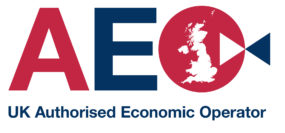As you may be aware the Government was forced to release the Yellowhammer contingency plan by parliament yesterday. It contains predictions of “reasonable worst case scenarios” in the event of a No-Deal BREXIT. We have selected a few relevant points and highlighted them below:
- France will impose EU mandatory controls on UK goods on Day 1 No Deal (D1ND) and have built infrastructure and IT system to manage and process customs declarations and support a risk based control regime. On D1ND, between 50-85% of HGVs travelling via the short Channel Straits may not be ready for French customs
- Public and business readiness for a no-deal will remain at a low level, and will decrease to lower levels, because the absence of a clear decision on the form of EU Exit (customs union, no deal etc) does not provide a concrete situation for third parties to prepare for. Readiness will be further limited by increasing EU Exit fatigue, due to the second extension of Article 50, which will limit the effective impact of current preparedness communication.
- The lack of trader readiness combined with limited space in French ports to hold “unready” HGVs could reduce the flow rate to 40-60% of current levels within one day as unready HGVs will fill the ports and block flow. The worst disruption to the short Channel Straits might last for up to 3 months before it improves by a significant level to around 50-70% (due to more traders getting prepared), although there could continue to be some disruption for significantly longer.
- In a reasonable worst case scenario, HGVs could face maximum delays of 1.5-2.5 days before being able to cross the border.
- The BDG/DfT planning assumption on reduced flow rates describes a pre-mitigation reasonable worst case flow rate that could be as low as 40% D1ND via the short Channel Straits, with significant disruption lasting up to six months. Unmitigated, this will have an impact on the supply of medicines and medical supplies
- With the UK becoming a third country, the automatic application of the EU tariff and regulatory requirements for goods entering Ireland will severely disrupt trade. The expectation is some businesses will stop trade or relocate to avoid paying the tariff which will make them uncompetitive or to avoid the risk of trading illegally, while others will continue to trade, but experience higher costs which may be passed on to consumers
The full Yellowhammer document can be read here









